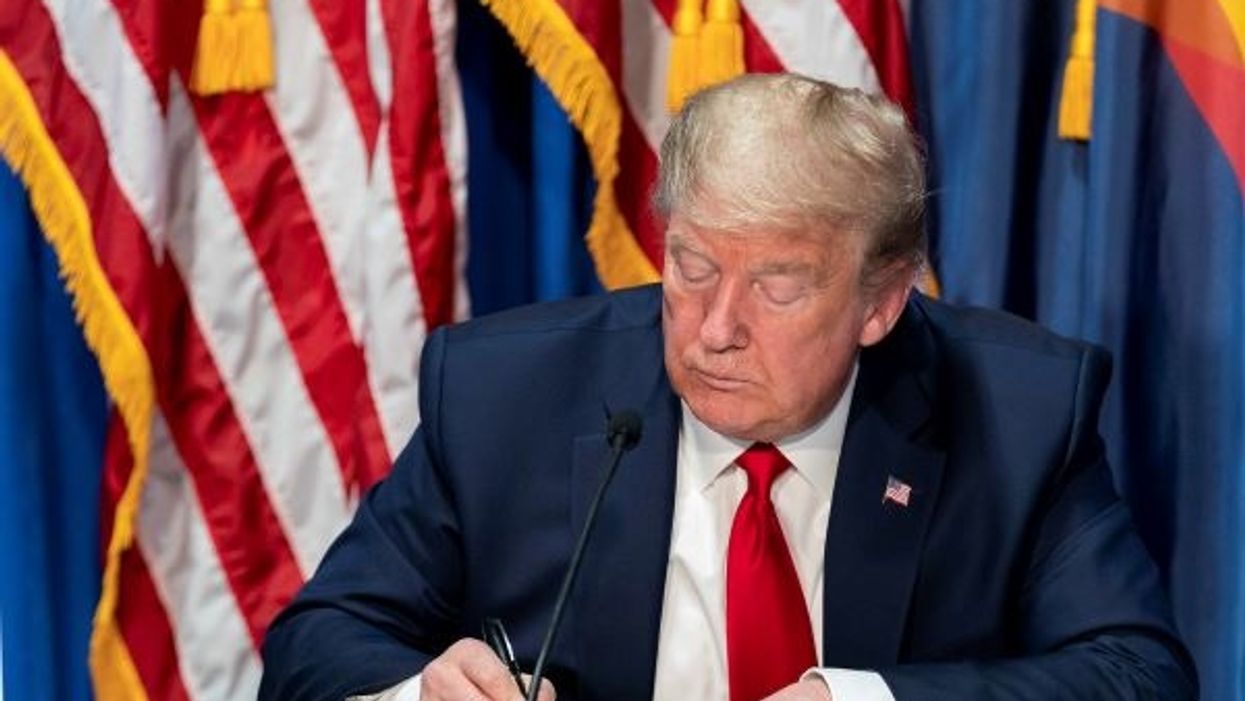Trump Aims To ’Terminate’ Obamacare In Midst Of Pandemic
Donald Trump on Wednesday said he still supports a Republican-led lawsuit before the Supreme Court that seeks to invalidate the Affordable Care Act, even amid the COVID-19 pandemic.
More than 1.2 million Americans have tested positive for the virus, and nearly 72,000 have died from it, according to a tally from the Washington Post.
Meanwhile, more than 30 million people have lost their jobs, and with that, they may have lost their employer-sponsored health care. Without the ACA — better known as Obamacare — it's unclear how those Americans would secure health insurance to pay for the cost of medical care or hospitalization if they contracted the coronavirus.
Members of Trump's own administration, including Attorney General William Barr, have urged Trump to back off its support of a lawsuit from Republican attorneys general that would invalidate Obamacare. According to CNN, those aides fear the political blowback if Obamacare is repealed, given that the law is popular.
But Trump — who tried once to repeal Obamacare and failed due to the unpopularity of the GOP's replacement plan — says he has no plan to abandon support for the lawsuit.
Instead, he said — without providing a concrete plant — that he will replace Obamacare with something better that will still cover preexisting conditions and will cost less.
The GOP plan that failed to pass Congress in 2017 did not fully cover preexisting conditions and would have allowed insurers to charge sick people more money for coverage.
Trump's full comment from a media availability with reporters on May 6 is below:
REPORTER: Today is the deadline for the White House if it wants to modify its argument before the Supreme Court about invalidating Obamacare... Will you continue with the plan to completely invalidate the ACA ...
DONALD TRUMP: So what we want to do ... We're not doing anything. In other words we're staying with the group, with Texas and the group.
But just so you understand, Obamacare is a disaster. But we've run it very well, and we've made it barely acceptable.
It was a disaster under President Obama, and it's a very bad health care. What we want to do is terminate it and give great health care, and we'll have great health care, including preexisting conditions, 100% preexisting conditions.
Now, we've already pretty much killed it, because we got rid of the individual mandate.
Now in getting rid of the individual mandate, which was by far the most unpopular thing in Obamacare... That's where for the privilege of paying a fee you don't have to buy health insurance at a ridiculous price for not good health insurance. It was a terrible thing. You were mandated to pay something in order not to pay. And we got rid of that, it's gone, and nobody thinks it's ever going to come back.
But what we are doing is we want to terminate health care for under Obamacare because it's bad, and we're replacing it with a great health care at far less money and it includes preexisting conditions. There will never be a time when we don't have preexisting conditions included.
So, what I'm saying there, John, is we're going to replace Obamacare with great health care at a lesser price, and preexisting conditions will be included, and you won't have the individual mandate, which was expensive and terrible and very unfair to everybody, and it was very unpopular.
Published with permission of The American Independent Foundation.



